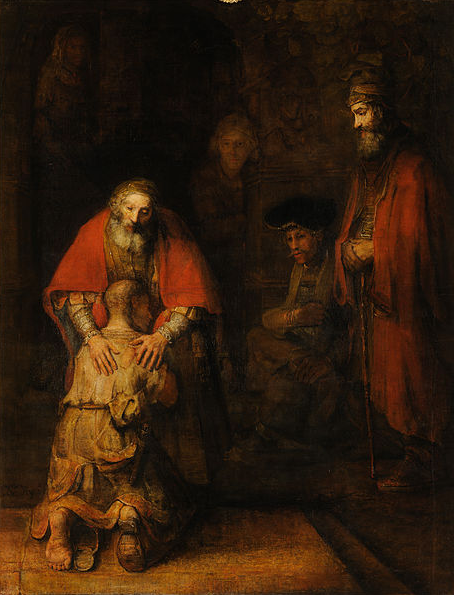
Give Me Mine, the second sermon in this series by Tim Keller, is the parable of the Prodigal Son. I have always been drawn to this parable taught by Jesus. Most people who have studied this parable believe that the crux of the parable lies in the relationship between the father and the younger son, but I look at it differently. I see this parable being less about the actions of the younger son, and more about the response of the older son to his father resolving his relationship with the younger son. In this sermon, Keller explained that the older son’s idolatry is even harder to spot than the younger son’s. It becomes apparent that just like his brother, his heart is set just as much on the “stuff” the father can give and not on loving the father himself. The focus that both of these men have on their father’s property and not on his love for them is tearing apart the community of the family.
Like the two brothers in this parable, the client’s we will see (and even ourselves) will often have built their lives around disordered loves. Saint Augustine wrote about the disorderd loves of his life in his book The Confessions. Like Augustine we’re drawn to and deceived by the beauty of things. We’re left feeling empty and unsatisfied by the pursuit of those things. I believe that often our depression and anxieties are a result of pursuing things that are ultimately unsatisfying and empty. As Christian’s our goal needs to be on living life in pursuit of God and making him our love. Instead of asking God for the things he can give us, we need to be focused on loving God regardless of what he does. Then, and only then, we will find ourselves being fulfilled.
Living a life that focuses on chasing things, instead of chasing God’s heart, starves us and enslaves us emotionally (as Keller points out) and as we become more and more enslaved by the pursuit of things, our relationships dissolve. The resulting breakdown in relationships in the lives of people lands them in our offices for us to work with them on repairing their hurting and destroyed relationships.
I believe that we can work with people to refocus their lives away from things (the pursuit of false idols) and back toward relationships with others. As Keller says, we were built for community and relationships, and as therapists we have unique skillsets and knowledge on how to help people understand the importance of relationships and how to get back to living a life that honors community and relationships. If we do this, I believe that our clients will begin to live lives of renewed hope and vibrancy.
(Image: Rembrandt's Return of the Prodigal Son, circa 1669)